Key Information
CPD Hours: 36 hours
Enrol Now
This course may run again in the future. To register your interest please contact us.
Alternatively you can download and email using our Registration Form
Course Information
- Fundamentals of anaesthesia
- Pre-anaesthetic assessment, sedatives and premeds
- Anaesthesia of the healthy patient – anaesthetic protocols, patient support and monitoring
- Advanced analgesia in practice
- Challenging anaesthetics and controversies – small furries, pre-anaesthetic diagnostics, things that go wrong
- Support of the critical patient under anaesthesia – more advanced monitoring, blood pressure monitoring, fluid therapy, blood transfusions, ventilators
- Anaesthesia for the critical patient – critical cases, neurological cases, neonates, geriatrics
This six week online course is a must for any veterinarian interested in safely anaesthetising even the most critical of patients, managing pain effectively in their patients and enhancing their knowledge of the latest advances in anaesthetic and analgesic strategies for small animals. The course will review the fundamentals of anaesthesia and analgesia for healthy patients then move on to anaesthetic and analgesic options for the more critical patient. It will also be useful CPD for veterinarians preparing for RCVS CertAVP C modules in small animal anaesthesia and analgesia and critical care.
The course will consist of webinars, reading material, case assessments, reference critiques and discussion activities online. Webinars will be recorded to be made available for participants to view later if not able to view 'live'. Participants can earn up to 36 CPD hours if the course is completed fully.
Schedule (timings subject to change)
Weeks 1-2 Fundamentals of anaesthesia and anaesthesia of the healthy patient.
Week 1: Introduction to course & Fundamentals of anaesthesia Introduction to the Blackboard system. Discussion of the main limitations to providing good anaesthesia to patients in delegates own practices. Online lectures: Pre-anaesthetic assessment; Sedatives and Premeds.
Week 2: Anaesthesia of the healthy patient: Choosing anaesthetic protocols and support of the patient under anaesthesia mainly discussion based. During this week there will also be an introduction to critical reading of a scientific paper. Online lectures: Anaesthetic protocol; Patient Support & Monitoring.
Weeks 3-6: Improving anaesthetic practice and anaesthesia for challenging/critical patients.
Week 3: Advanced Analgesia in practice: More advanced analgesia, using local blocks, infusions, chronic pain management.
Week 4: Support of the critical patient under anaesthesia: More advanced monitoring, BP monitoring, fluid therapy, blood transfusions, ventilators.
Week 5: Introducing challenging anaesthetics: General principles for anaesthesia of the patient with pre-existing conditions, and specific examples of some of the more commonly seen patients. Review of the scientific paper posted in week 2.
Week 6: The challenging anaesthetic: Discussion based. Devising an anaesthetic plan for a complicated patient, and introducing controversial aspects of patient management. Discussion of anaesthesia for exotic and small mammal species. Troubleshooting when things go wrong.
Practical day
An optional practical day for the online participants is available on Friday 20th February, with a cost of £349 to attend. This will include practice of local blocks using cadavers (epidurals, dental blocks, brachial plexus blocks etc), and practice with anaesthetic machines and monitoring equipment.
Practical day programme
- 08:30 ‐ 09:00 Registration and refreshments
- 09:00 ‐ 09:30 Welcome and introduction
- 09:30 ‐ 12:30 Local anaesthesia using cadaver dogs, including tea/coffee break
- 12:30 ‐ 13:30 Lunch
- 13:30 ‐ 16:30 Interactive seminar sessions, covering topics such as ventilator management, getting the most out of anaesthetic monitors, and discussions of challenges experienced with anaesthetic management. Equipment will be available to try out, with tutors present to demonstrate, assist and answer questions - inlcudes tea/coffee break
For more information on our practical day and to book visit http://cpd.rvc.ac.uk/courses/small-animal-anaesthesia-and-analgesia-practical-day
Elizabeth Armitage-Chan, MA VetMB DipACVAA FHEA PhD MRCVS
Professor of Higher Education
The Royal Veterinary College

